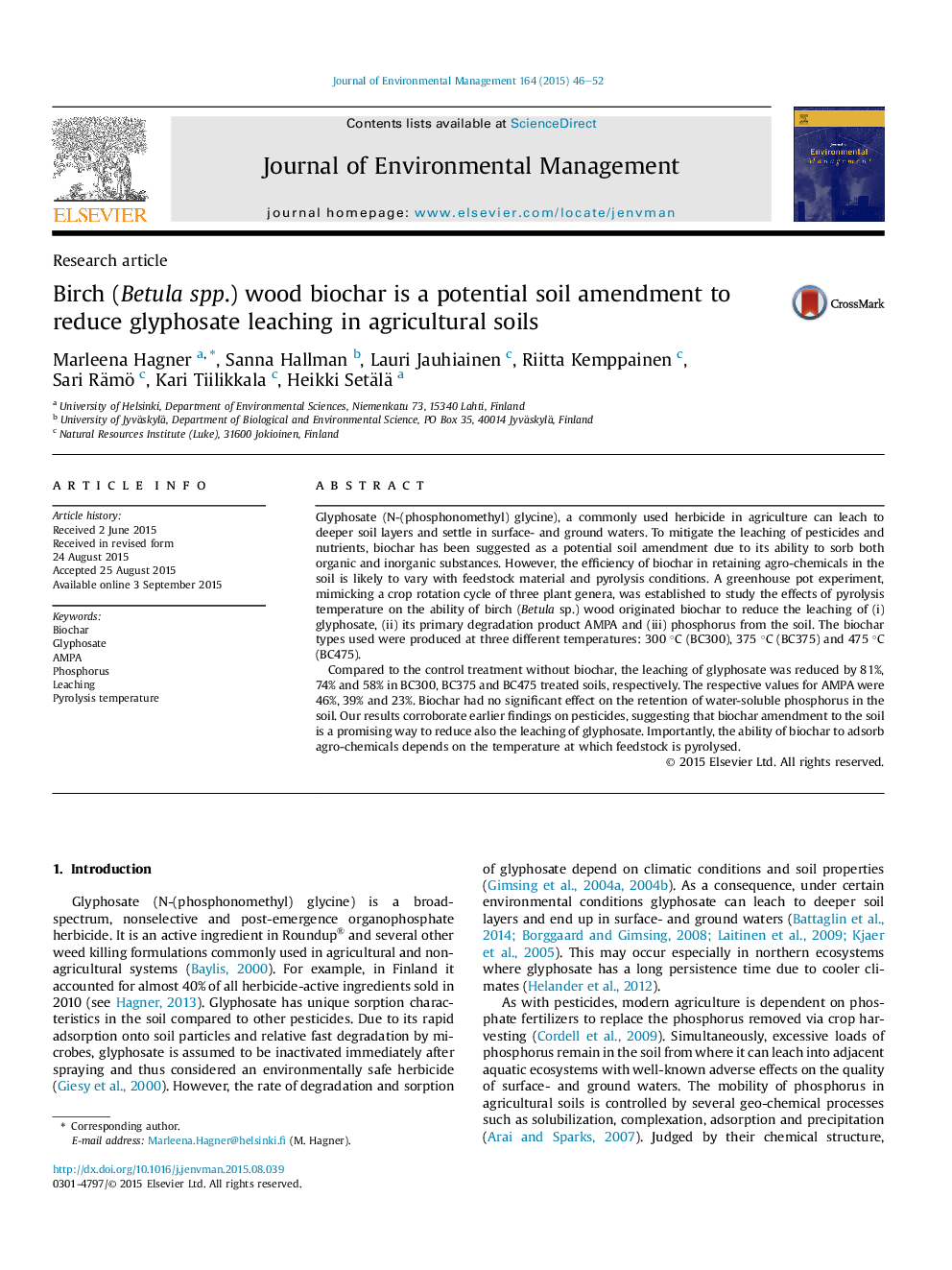| Article ID | Journal | Published Year | Pages | File Type |
|---|---|---|---|---|
| 1055405 | Journal of Environmental Management | 2015 | 7 Pages |
•Biochar reduced concentrations of glyphosate and AMPA in the water leachates.•Biochar produced at low temperature is more effective in reducing glyphosate leaching.•Biochar application had no impact on the leaching of dissolved phosphorus.
Glyphosate (N-(phosphonomethyl) glycine), a commonly used herbicide in agriculture can leach to deeper soil layers and settle in surface- and ground waters. To mitigate the leaching of pesticides and nutrients, biochar has been suggested as a potential soil amendment due to its ability to sorb both organic and inorganic substances. However, the efficiency of biochar in retaining agro-chemicals in the soil is likely to vary with feedstock material and pyrolysis conditions. A greenhouse pot experiment, mimicking a crop rotation cycle of three plant genera, was established to study the effects of pyrolysis temperature on the ability of birch (Betula sp.) wood originated biochar to reduce the leaching of (i) glyphosate, (ii) its primary degradation product AMPA and (iii) phosphorus from the soil. The biochar types used were produced at three different temperatures: 300 °C (BC300), 375 °C (BC375) and 475 °C (BC475).Compared to the control treatment without biochar, the leaching of glyphosate was reduced by 81%, 74% and 58% in BC300, BC375 and BC475 treated soils, respectively. The respective values for AMPA were 46%, 39% and 23%. Biochar had no significant effect on the retention of water-soluble phosphorus in the soil. Our results corroborate earlier findings on pesticides, suggesting that biochar amendment to the soil is a promising way to reduce also the leaching of glyphosate. Importantly, the ability of biochar to adsorb agro-chemicals depends on the temperature at which feedstock is pyrolysed.
